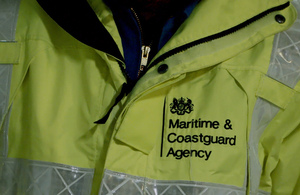Safety and innovation at heart of new code for small commercial vessels used for sport or pleasure
Safety and innovation are at the heart of updated regulations for small commercial vessels used for sport or pleasure that will be phased in from 12 December 2025 by the Maritime and Coastguard Agency (MCA), starting only with new vessels entering either code for the first time.

The new Merchant Shipping (Vessels in Commercial Use for Sport or Pleasure) Regulations 2025 will set clear, pragmatic standards across the sector by underpinning two codes of practice for vessels below and above 24 metres in length.
The changes will apply gradually to more vessels as their certificates come up for renewal or within three years, whichever is longer. Some of the standards under which existing vessels have been assessed will continue to be accepted under the new code.
The regulations provide a consistent framework that better reflects the commercial sector’s growing variety of craft and activities – ranging from sailing vessels, including those engaged in racing activities and race support boats, to high-speed craft carrying passengers on sightseeing trips.
Important updates include:
-
responses to relevant safety recommendations by the Marine Accident Investigation Branch, including those relating to fatal incidents
-
an enabling regulatory framework for vessels using alternative fuels and propulsion, to help keep the UK at the forefront of decarbonising the shipping industry
-
support for technological innovation and further clarity of survey and inspection requirements for commercial owners and operators
The changes follow at least two years of discussion between the MCA and commercial operators, manufacturers and industry bodies, including a 12-week consultation that concluded on 25 February and a stakeholders’ conference on 15 May.
Lesley Robinson, CEO of British Marine, said:
British Marine welcomes the introduction of the Maritime and Coastguard Agency’s new Sport or Pleasure Vessel Code, recognising it as a significant step forward in modernising safety standards across the commercial leisure marine sector.
This Code reflects over two years of extensive collaboration between the MCA, British Marine and a wide range of industry stakeholders through dedicated working groups, ensuring that the final framework is both practical and proportionate.
Kerry McMillan, Chief Executive of the Association of Sail Training Organisations (ASTO), said:
ASTO welcomes the MCA’s recent revision of the Regulations for Small Vessels in Commercial Use for Sport or Pleasure to take into account developments in modern seafaring and best practice.
Safety and the welfare of those at sea is central to what our member organisations deliver when taking their beneficiaries – young people and people of all ages with disabilities – on life-changing residential adventures at sea.
Bringing complex Codes of Practice such as this up to date can be challenging which makes the opportunity to be heard through public consultation and stakeholder meetings all the more important.
We are keen to carry on working in partnership with the MCA in the future to ensure that the beneficiaries of our member organisations continue to be able to access the personal development and enrichment that sail training offers. This in turn builds better communities for us all as well as greater knowledge of the sea and the maritime sector.
Rob Taylor, MCA Code Vessel Lead, said:
This update is long overdue and will support commercial owners and operators by adding relevance and clarity to safety requirements for survey and inspection and innovation.
These pragmatic changes recognise the development of standards and the significant shift in use of technology and the growing variety of craft and activities in the commercial sector since the Colour Codes and MGN 280 were first published, providing for all types of vessels: from racing sailing yachts to those used for high-speed passenger rides.
The new code also critically addresses recommendations issued to the MCA by the Marine Accident Investigation Branch.
We have spent several years engaging with stakeholders across the small commercial vessel sector. Conversations have shaped the new regulations, reflecting the growth, variety and new technology of vessels, which we want to help keep safe and thrive.
The regulations are being laid before Parliament today (20 November 2025) with application to be phased in from 12 December 2025.
The new Code can be viewed here: https://www.gov.uk/government/publications/the-sport-or-pleasure-vessel-code
To find out more, visit this Q&A: https://www.gov.uk/government/publications/regulations-update-for-small-vessels-in-commercial-use-for-sport-or-pleasure
Background:
The new regulations will give effect to two codes of practice: the new ‘Sport or Pleasure Vessel Code’ for small vessels of less than 24 metres load line length; and the existing Part A of the REG Yacht Code for large vessels of 24 metres or more load line length.
Light duty workboat opportunities will continue under the Workboat Code Edition 3 by application for a ‘Light Duty Workboat Certificate’ which allows vessels certificated under the Sport or Pleasure Vessel Code to also be certificated for light duty (up to 1,000kg of cargo) workboat operations.
The new Regulations will apply to seagoing UK vessels wherever they may be and to other seagoing vessels operating from UK ports whilst in UK waters.
Press office
Email public.relations@mcga.gov.uk
Press enquiries (Monday to Friday, 9am-5pm) 0203 817 2222
Outside these hours or on bank holidays and weekends, for media enquiries ONLY, please send an email outlining your query and putting #Urgent in the subject title.